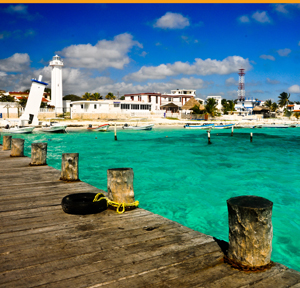Guyana falls foul of the CFATF
Chris Hamblin, Clearview Publishing, Editor, London, 26 June 2014

The Caribbean Financial Action Task Force, the international regulatory body that oversees improvements in its member-states’ anti-money-laundering regimes, has come down hard on yet another jurisdiction.
The Caribbean Financial Action Task Force, an international regulatory body that oversees improvements in its member-states’ anti-money-laundering regimes, has come down hard on yet another jurisdiction.
As a result of not meeting the agreed deadlines (or ‘timelines’) in its action plan, the CFATF has slated Guyana as a jurisdiction with significant money- laundering and terrorist finance-related deficiencies that has failed to make significant progress in addressing those deficiencies. It has gone so far as to declare that it considers Guyana, an aspirant player in the offshore financial world, to be “a risk to the international financial system,” a system, some say, that is dominated by countries where the top management at banks are immune from gaol however much their banks launder. Members of the entire CFATF are therefore called upon to take further ‘counter-measures’ to ‘protect’ their financial systems from the proceeds (or, in the case of terrorist money, the ‘pre-ceeds’) of crime. Also, the CFATF has referred Guyana to the Financial Action Task Force, the world’s AML standard-setter.
Countermeasures
‘Countermeasures’ – a piece of American naval jargon to do with warding off submarine attacks that the FATF unaccountably took to using after 11 September 2001 – could entail, among other things, the requirement to perform ‘enhanced due diligence’ on any person from Guyana; the introduction of more stringent reporting mechanisms or the “systematic reporting of financial transactions,” which perhaps might entail suspicious transaction reports for everything above a certain volume, or everything that involves sectors that pose a high risk of money-laundering; refus- als by the regulators in the country concerned to allow the establishment of subsidiaries or branches or representative offices, or other things that take into account the fact that the relevant financial institution is from a country that the powers-that-be want to punish. This last could, the CFATF thinks, include limitations on business relationships or financial transactions that involve the stricken country or persons in that country.
The latest round of regime improvement
In November 2011 the CFATF brought certain jurisdictions (including Guyana) with, in its opinion, significant strategic deficiencies in their compliance efforts to the attention of its members. With a view to encouraging the recalcitrant state to rectify its putative deficiencies, the CFATF induced Guyana to sign an ‘action plan’ with identified target dates. The CFATF issued a public statement in May 2013 to recommend that Guyana should take steps to ensure that it addressed its AML/ CFT deficiencies – a conclusive sign that nothing was happening. Then, in November 2013, the regional body issued a further public statement calling upon its members to ‘consider’ implementing counter measures to protect their financial systems from the ongoing money laundering and terrorist financing risks emanating from Guyana.
The CFATF’s demands
The governmental club issued a statement that said: “Guyana has failed to pass the relevant legislation necessary for it to significantly improve its AML/CFT regime and therefore has not substantially addressed the outstanding deficiencies from its mutual evaluation report. The CFATF urges Guyana to urgently, immediately and meaningfully address its AML/CFT deficiencies, in particular by:
1) fully criminalising money laundering and terrorist financing offences,
2) addressing all the requirements on beneficial ownership,
3) strengthening the requirements for suspicious transaction reporting, international co-operation, and the freezing and confiscation of terrorist assets, and
4) fully implementing the United Nations conventions.”
It is a peculiar fact that even though much of the ancestry of its population stems from the Indian sub-continent, there are no reported hawala or other money- or value-transfer services in Guy- ana. Casinos, however, are legal there and may pose a money-laundering risk.












